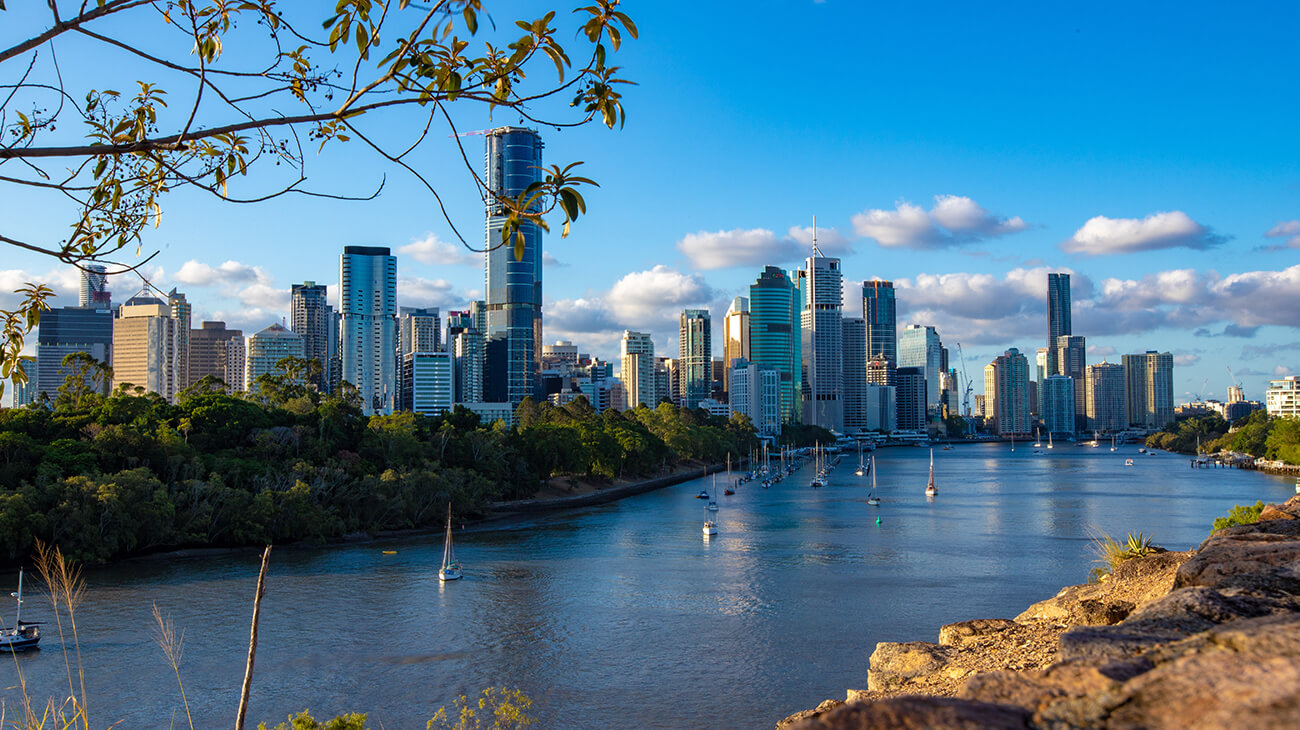Brisbane is the state capital of Queensland and the third-largest city in Australia after Sydney and Melbourne, with a population of 2.5 million people. Roughly 30% of Brisbane residents have been born overseas, which makes it a truly cosmopolitan city.
Brisbane is located to the north of both Sydney and Melbourne, therefore, it’s a warmer and more humid city.

IT salaries
The average IT salary in Brisbane is A$83,295 per year (A$6,940 per month). It can vary depending on the specialization. Below are a few examples (AUD per year):
- Software developer: 81,540 / 6,795
- Front-end developer: 90,000 / 7,500
- Full-stack developer: 80,000 / 6,670
- DevOps engineer: 112,000 / 9,330
- Database administrator: 72,950 / 6,080
- Web designer: 56,840 / 4,740
- System administrator: 79,180 / 6,600
- Project manager: 131,000 / 10,920
- QA engineer: 67,860 / 5,650
- Technical writer: 72,430 / 6,040
- Security analyst: 72,445 / 6,040
IT salaries also depend on the specialization. Here are some examples (AUD per year).
Automation test analyst:
- Junior: 80,000
- Middle: 95,000
- Senior: 105,000
Cybersecurity specialist:
- Junior: 120,000
- Middle: 140,000
- Senior: 160,000
Database administrator:
- Junior: 80,000
- Middle: 90,000
- Senior: 110,000
Front-end developer:
- Junior: 80,000
- Middle: 90,000
- Senior: 100,000
Full-stack developer:
- Junior: 70,000
- Middle: 80,000
- Senior: 90,000
Project manager:
- Junior: 90,000
- Middle: 105,000
- Senior: 120,000
Systems administrator:
- Junior: 75,000
- Middle: 80,000
- Senior: 95,000
Economy
Brisbane is one of Australia’s major economic centers and business hubs. The unemployment rate in Brisbane is 5.1% — the same as the national average.
Important economic sectors in Brisbane include:
- Aerospace
- Construction
- Education
- Electronics
- Energy
- Finance
- Health care
- IT
- Manufacturing
- Mining
- Retail trade
- Tourism
Brisbane is also an emerging ITC (information and communications technology) market, with R&D (Research and Development), BioTech, and CleanTech being the most prominent tech subsectors.
The largest technology companies present in Brisbane include:
- Microsoft
- TechnologyOne
- WebCentral
Cost of living
In terms of consumer prices, Brisbane is comparable to Melbourne and 10% cheaper compared to Sydney.
The average monthly costs in Brisbane are about A$1,320 for one person or A$4,700 for a family of four, excluding rent.
The average prices in Brisbane (AUD):
- Meal at McDonald’s: 11–16
- Meal at another inexpensive restaurant: 13–35
- Average food basket (milk, bread, eggs, cheese, chicken, apples, potatoes, water, beer): 44
- Monthly fee at a fitness club: 30–100
- Monthly pass: 90–220
- Monthly rent (1 bedroom): 1,000 – 2,100
- Monthly rent (3 bedrooms): 1,500 – 3,600
- Property prices per square meter: 3,500 – 10,000
- Utilities: 120–400 per month
Travel
Brisbane Airport is the city's main airport, the third busiest in Australia after those of Sydney and Melbourne. It serves both domestic flights (Adelaide, Alice Springs, Cairns, Canberra, Hobart, Melbourne, Sydney, and others) and international flights (Abu Dhabi, Auckland, Dubai, Guangzhou, Hong Kong, Los Angeles, Shenzhen, Vancouver, and more).
Entertainment
Brisbane has a lot to offer. Its popular attractions include ANZAC Square, City Hall and King George Square, the Parliament of Queensland, the Queensland Art Gallery and Gallery of Modern Art, Queensland Cultural Centre, St John’s Cathedral, the Story Bridge, West End, and more. There is also an abundance of art galleries, theaters, and music venues.
Tired of city life? You can visit one of many Brisbane’s green zones that include Brisbane Forest Park, the City Botanic Gardens, Roma Street Parkland, South Bank Parklands, as well as Mount Coot-tha with its Botanic Gardens and planetarium, and Moreton, North Stradbroke and Bribie islands.
This city is also a gateway to the Gold Coast and the Sunshine Coast, which are home to numerous popular surfing and swimming beaches, located south and north of Brisbane, respectively.